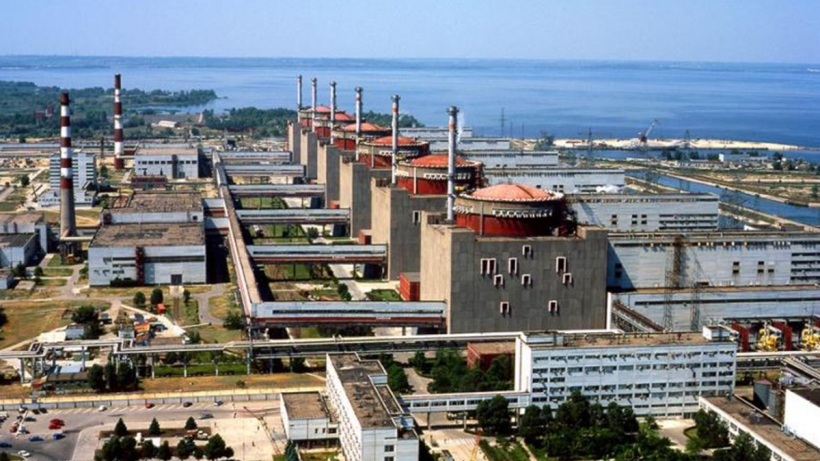The final hot reactor at the Zaporizhzhya nuclear plant in Ukraine is in cold shutdown after the site was targeted by a drone strike on Tuesday—an escalation of the conflict that could put the plant in jeopardy.
The story so far: Things have been precarious at Zaporizhzhya for a while, to say the least. The plant is unfortunately located at the front lines of the war and is currently under Russian occupation, as it has been since the early days of the invasion.
- The plant hasn’t produced energy since September 2022.
- Five of the plant’s six reactors have been in “cold shutdown,” meaning that the fission reaction had stopped and that excess heat from the leftover fuel was being removed. The last reactor was, until recently, in “hot shutdown,” meaning that though fission had stopped, the operators were keeping the fuel hot for district heating and process steam.
- Zaporizhzhya has lost outside power and had to switch to diesel backup generators eight times since the war broke out.
“We are rolling a dice and if this continues then one day our luck will run out,” Rafael Mariano Grossi, director general of the UN-affiliated International Atomic Energy Agency (IAEA), said in a statement in May 2023, nearly a year ago. In terms of safety, not a lot has changed since.
Zaporizhzhya has been targeted by drone strikes already in the course of Russia’s invasion of Ukraine. The last time it was directly attacked was in November 2022.
Damage done: On Tuesday last week, a team of IAEA officials stationed at Zaporizhzhya reported arms fire and explosions. Later, the teams confirmed a drone strike in the area. As to who was responsible, Russian and Ukrainian forces each pointed a finger at the other.
The attack didn’t cause a meltdown or disruption to nuclear safety.
Working it out: Russia and Ukraine each requested an emergency board meeting of the IAEA last week. The council met on Thursday to figure out a strategy for de-escalation.
“I firmly appeal to military decision makers to abstain from any action violating the IAEA’s five concrete principles to prevent a nuclear accident and ensure the integrity of the plant, and I urge the international community actively to work towards a de-escalation of what is a very serious situation,” Grossi said in official remarks.
Those five principles:
- There should be no attacks on the plant, particularly its reactors and critical infrastructure.
- The plant shouldn’t be used to store heavy weapons or host attacks.
- Off-site power shouldn’t be targeted.
- All the plant’s support systems should be protected from attack or sabotage.
- No action should be taken that breaks any of these directives.
What’s next? The IAEA council meeting didn’t end with a written resolution. The leaders continued to hash things out in private, and Grossi is set to meet with the UN Security Council this week to raise the issue again.
Note: A previous version of this story incorrectly defined “hot” and “cold shutdown” of the reactors. This error has been corrected.
Lead Reporter of Ignition





